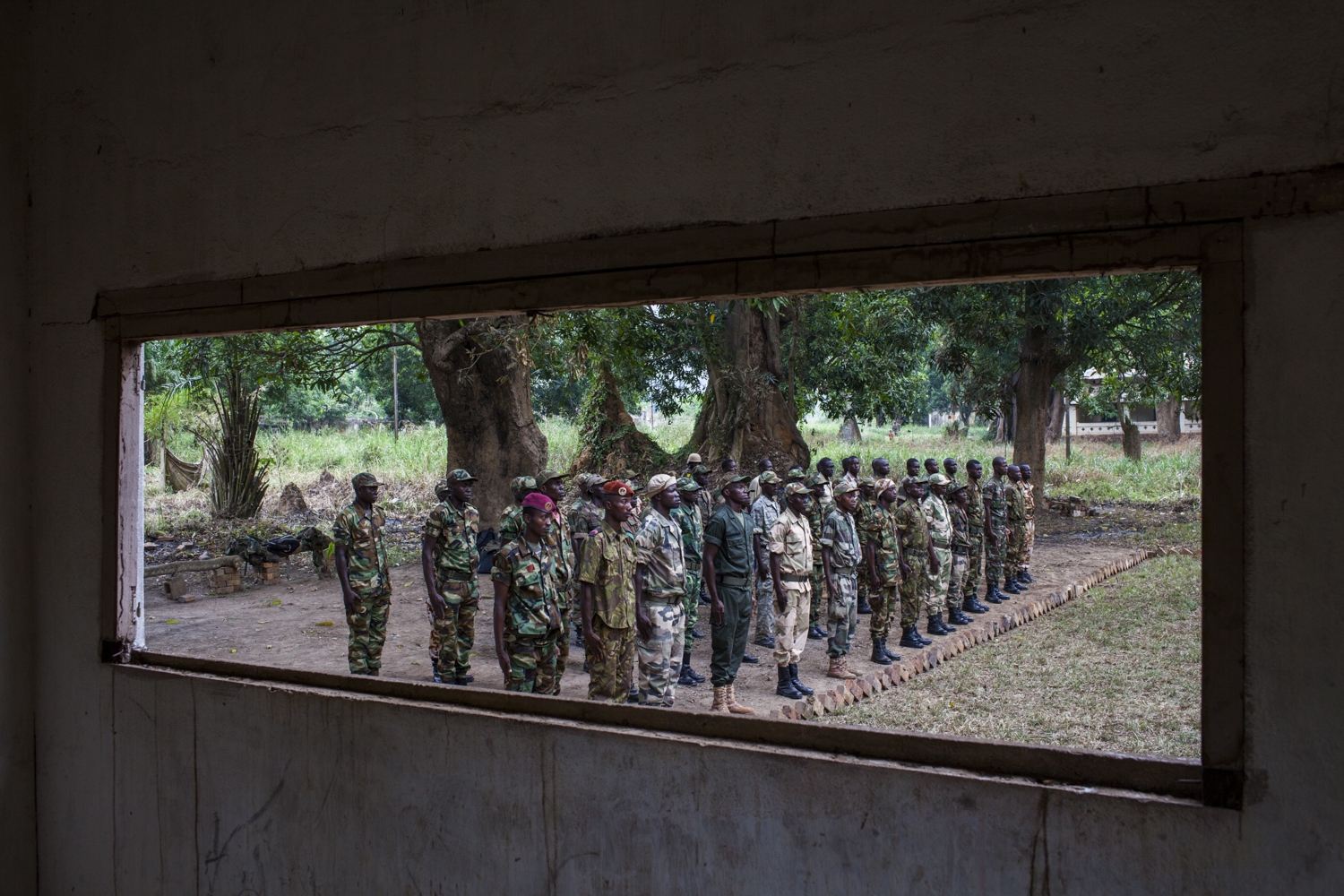October 16, 2017

By Samantha Behlog, Simon-Skjodt Center intern for fall 2017.
In recent months, international officials and humanitarian groups have begun to sound the alarm about resurgent violence and the risk of further mass atrocities in the Central African Republic (CAR). CAR has been a battleground for armed groups since 2013, with some of the violence occurring along religious and ethnic lines. After a trip to the region in August 2017, UN Under-Secretary-General for Humanitarian Affairs Stephen O’Brien warned, “the risk of relapse into another large-scale humanitarian crisis is imminent” and that “the early warning signs of genocide are there." And in a recent report, the International Crisis Group (ICG) warned that without further action by the international community, clashes between sectarian groups could escalate into large-scale conflict. The Early Warning Project has ranked CAR 3rd, 5th, and 7th in the world for risk of onset of mass killing (in 2014, 2015, and 2016 respectively), and we are currently asking people to log in to Good Judgment Open and participate in our public forecasting challenge to help us assess current risk.
The current conflict began in March 2013 with the capture of the capital Bangui and the overthrow of President Francois Bozize by Seleka, a coalition of mostly Muslim militia formed in late 2012 in response to grievances over political exclusion. Seleka fighters attacked Christian communities before and after coming to power, which led to the formation of mostly-Christian or animist groups calling themselves “anti-balaka” (meaning anti-machete). These groups began conducting retaliatory attacks against Muslim civilians, sending CAR into an escalating cycle of reprisal violence that killed an estimated 3,000-6,000 people (though the report warns that the data are incomplete and “fail to capture the full magnitude of the killings that occurred”) and displaced one million—about a quarter of the country’s population—in 2013 and 2014. Since 2013 the Early Warning Project has counted violence against civilians perpetrated by anti-balaka groups as an ongoing mass killing episode. Presidential and legislative elections in 2015-16 and multiple ceasefire agreements have periodically limited violence in the capital, but fighting between and among sectarian militias has continued in areas outside Bangui. Armed groups control much of the country’s territory and fight for control of natural resources and political influence. Their violence continues to fuel retaliatory attacks on civilians.
Recent international efforts to achieve a modicum of stability have faltered. A French military effort, known as Operation Sangaris, withdrew from CAR in late 2016, and the UN peacekeeping mission, MINUSCA, has been challenged to stem subsequent violence. In May 2017, violence between militia far to the east of Bangui near the border with the Democratic Republic of Congo left about 300 people dead and 100,000 people displaced in just two weeks—the worst displacement since 2013. There are now nearly 600,000 internally displaced persons, including whole communities that are sheltering in churches and other places of worship for fear of attack. According to the Crisis Group report, the growing proliferation of armed groups in CAR’s provinces and new attacks on Muslim civilians are warning signs that a severe uptick in violence might soon occur. UN human rights officials and NGOs have warned that a return to full-scale civil war would likely lead to renewed mass atrocities, including rape and other forms of sexual violence, mass killing, and forced displacement.
UN officials and NGOs have called on international actors to take steps to mitigate the risk of potential new atrocities. UN officials have requested additional peacekeeping forces to bolster MINUSCA and quell new militia violence. To date, UN member states have funded only 30 percent of the UN’s $497 million appeal for humanitarian assistance to CAR. In its recent report, Crisis Group called on the CAR government and its international partners to “[tackle rebels’] sources of income and [exercise] stronger military deterrence,” while also “[rebuilding] trust among the populations of peripheral regions.” The CAR government, in collaboration with the UN Office of the High Commissioner for Human Rights and other international organizations, has developed a plan for national recovery with priority areas including security, justice, and reconciliation. However, the central government lacks physical presence outside the capital and has limited capacity to implement this plan without international support.
Central Africans have made clear their desire for perpetrators of atrocity crimes to be brought to justice. Adama Dieng, Special Adviser of the Secretary-General on the Prevention of Genocide, returned from a trip to CAR and released a statement on October 13 condemning the violence and insisting that “Any individual responsible for criminal atrocities or incitement to commit such atrocities will sooner or later have to assume criminal responsibility for their acts and face national or international justice.” As part of the Bangui Forum—a 2015 conference on national reconciliation, which brought together transitional government representatives, civil society, and armed actors—participants agreed to establish a Special Criminal Court (SCC), to be staffed by national and international judges and prosecutors. The transitional government established the court in 2015 with a mandate to prosecute serious human rights abuses committed in the country since 2003, working in complementarity with the International Criminal Court. Though the body is still being set up, the hope is that the SCC will begin to address the longstanding issue of impunity that underpins much of the violence.
Ending the violence, holding perpetrators accountable, and implementing the plan for national recovery will require adequate financial and political support to succeed. While armed groups are the main perpetrators of violence, they prey on intercommunal grievances and distrust, suggesting that any strategy to prevent continuation or escalation will need to address these grievances and this history of impunity.
Learn more about the conflict and the US government response on our Central African Republic case page.
View All Blog Posts